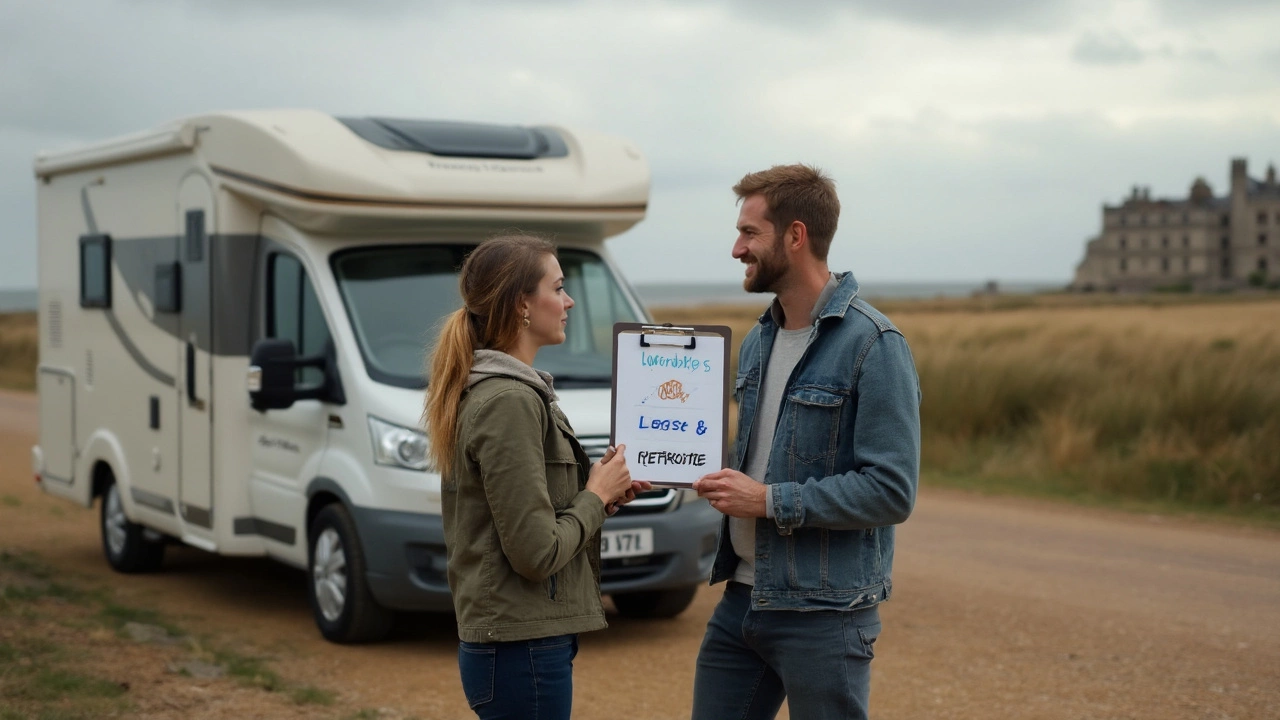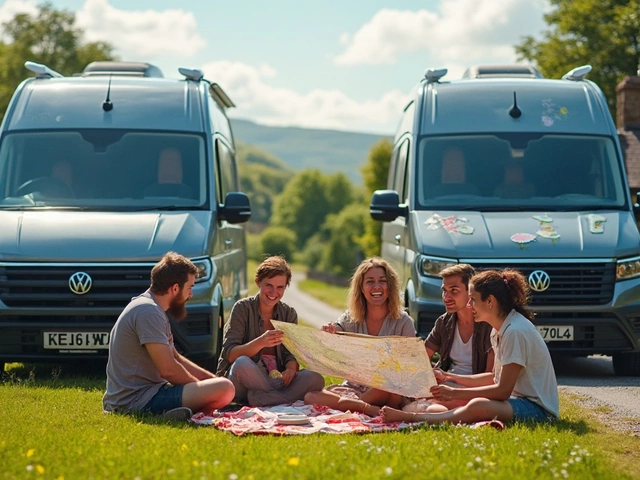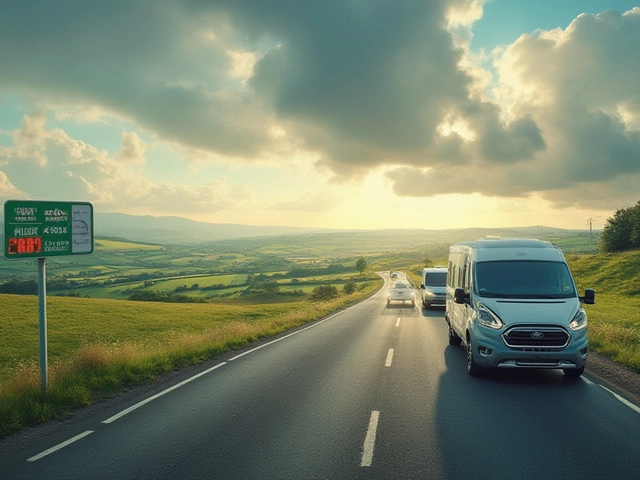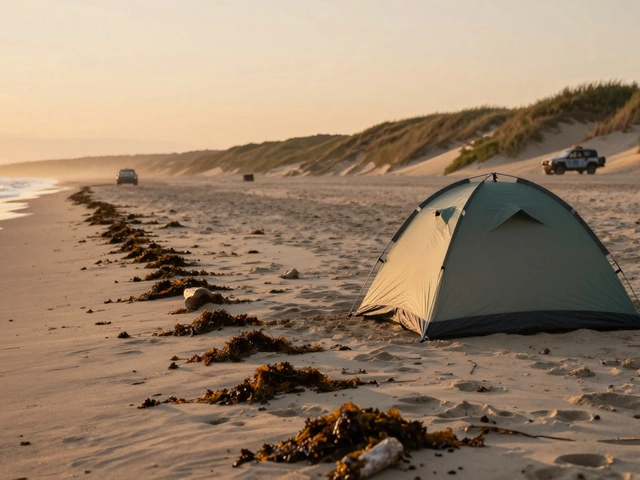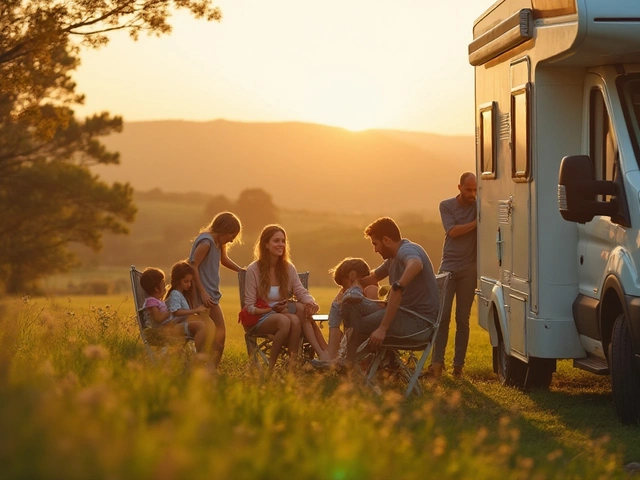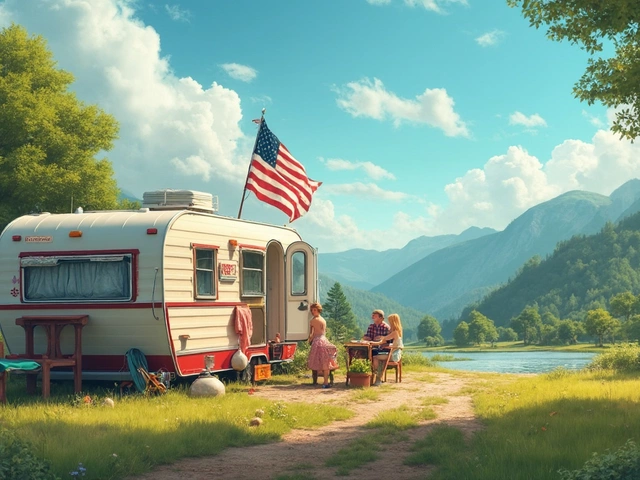So, you're eyeing that patch of land for your RV and wondering if it’s a golden ticket or a money pit. RV lots can look like a solid investment, especially with more folks hitting the road and ditching traditional homes. But the truth isn’t always so clear-cut.
First thing to know—buying an RV lot isn’t the same as flipping a house or picking up vacation property. RV parks and resorts have their own set of rules, fees, and quirks. Some lots come with snazzy hookups and killer amenities, but others are little more than a muddy field with some electrical wiring gone rogue.
Price tags range from under $10K for off-grid land in the boonies to more than $200K for a slice of paradise near beaches or mountain towns. Value depends not just on location but also on how strict the HOA is, whether you control rental choices, and what shape the market's in. And not every lot appreciates over time—some actually lose value or get hit hard by new zoning rules.
- The Basics of RV Lot Ownership
- What Can Make or Break Your Investment
- Fees, Rules, and Unexpected Costs
- Income Potential: Renting and Reselling
- Tips and Red Flags Before You Buy
The Basics of RV Lot Ownership
Buying an RV lot comes with a few choices—you can snag a deeded lot (where you actually own the land) or lease a spot in a park for a set number of years. Deeded lots are more like traditional real estate, but with a twist. Some give you full freedom, while others have a stack of rules from the HOA thicker than a diner menu.
So, what are you actually getting? It ranges a lot! Some lots come plumbed for water, have sewer and electric hookups, and maybe even internet. Others are raw land—you’ll handle everything from utilities to mowing, or pay someone for it. Then there are park models, where you own both a small cabin or trailer and the land under it, but that usually comes with stricter park guidelines.
Zoning can make or break your purchase. If the lot isn’t zoned for full-time living or rentals, you’ll be stuck using it only part of the year or just for your own trips. Insurance is another surprise—lots in low flood zones or wildfire areas may cost a lot more to insure, or be flat-out uninsurable.
Here’s a quick look at what usually comes standard and what you might pay extra for:
| Feature | Usually Included | Usually Extra |
|---|---|---|
| Water/Electric/Sewer | Some resorts and premium parks | Raw/unimproved land |
| Internet/Cable | Upmarket resorts | Most non-resort lots |
| HOA Fees | Often required | Private/unregulated land |
| Rental Rights | Varies by park—some allow, some don’t | Check restrictions |
The RV lot investment basics are all about understanding exactly what you’re buying, what’s included, and what rules come with the deal. If you don’t like surprises, get everything in writing before you put your money down.
What Can Make or Break Your Investment
So, what really decides if your RV lot turns out to be a money-maker or just camping regret? There are a few big factors you can’t ignore—location, community rules, demand, and your own ability to rent out the spot. People usually picture sunny resort lots, but not every slice of land has Florida vibes or year-round sunshine.
Get this: location is still king. A RV lot investment near a national park, busy snowbird route, or coastline almost always has higher rental demand. A 2024 KOA report said RV parks in the Sun Belt had 30% higher occupancy than northern spots during winter months. Proximity to services matters too—nobody wants to stay somewhere with sketchy access and zero cell coverage.
The rules can be a deal breaker. Some RV resorts won’t let you rent out your lot unless you go through their central system (and pay a fat fee). Others have weird restrictions on who can use the lot and how long they can stay. Know before you buy—or you might end up stuck paying dues for a spot you can’t put to work.
"Don’t assume you can short-term rent your lot on your terms. Ask about restrictions upfront. Buyer shock is real with RV resort HOAs." — Justin Leach, RV Industry Analyst, interview in RV News (May 2024)
Let’s talk resale. Buying in a booming RV resort area boosts your odds of selling for a profit. If you buy in a park where lots sit empty, expect slim gains (if any). Here’s a real data snapshot from RV property sales last year:
| Region | Avg. Lot Price (2024) | Avg. Yearly Appreciation | Annual HOA Fees |
|---|---|---|---|
| Florida Gulf Coast | $120,000 | +6.2% | $3,200 |
| Arizona Snowbird Cities | $75,000 | +4.9% | $2,500 |
| Midwest Rural | $18,000 | –1.2% | $1,100 |
One surprise: not all lots increase in value, especially those far from popular vacation routes. Always ask about historical price changes—many parks have that info.
Checklist for picking a lot that stands a chance as an investment:
- Check if there’s year-round demand (not just seasonal traffic).
- Ask for a copy of community rules and rental policies.
- Chat with other lot owners about how often their sites are rented out.
- Watch out for big planned developments nearby, which can drive up your competition.
- Find out exactly what’s included in monthly or yearly fees—sometimes those extras eat all your profit.
Skip any lot if you can’t get straight answers to those questions from the seller or park board. The right info upfront makes all the difference in whether your RV lot is a dream or a dud.
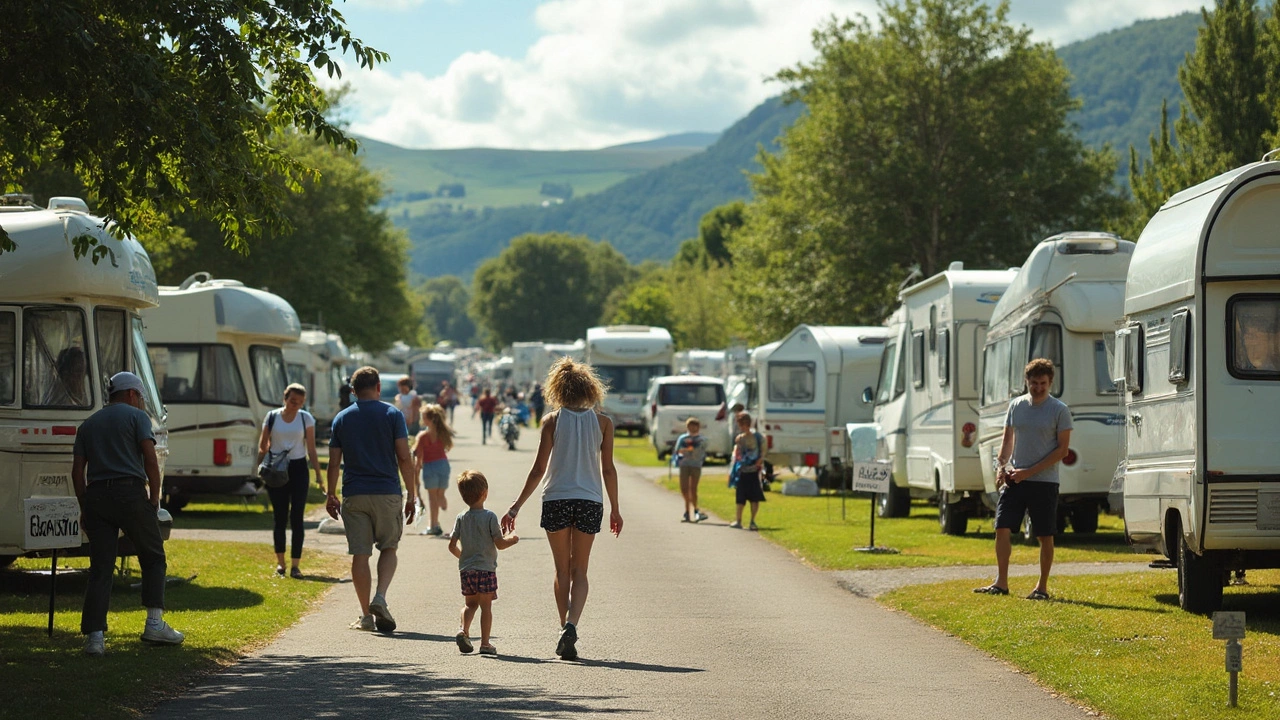
Fees, Rules, and Unexpected Costs
This is where a lot of folks get blindsided when they buy an RV lot. Upfront price is just the start. You’ll run into fees, rules that might cramp your style, and surprise costs hiding in the fine print. Get this part wrong, and your "investment" can turn into a headache fast.
First up: the usual fees. Most RV resorts and some standalone lots have some mix of these regular costs:
- HOA Dues: These usually run from $50 to $400 a month. Some cover utilities and park upkeep, others are just for basic admin work.
- Maintenance Fees: Think landscaping, pool cleaning, or fixing busted plumbing in common areas.
- Utility Charges: Sometimes water, sewer, trash, or even electricity isn’t included. Metered lots can eat into your budget if you use a lot of power or water.
- Special Assessments: If the park votes to fix roads or upgrade cable, you might get hit with a bill for thousands. There’s almost no way to dodge these if you’re an owner.
Rules can be the dealbreaker for some. Want to Airbnb your lot? Lots of parks block it outright or limit renters to three months. Exterior changes, like adding a shed or fancy patio, often need approval. Some parks have weird age limits on RVs (like no rigs over 10 years old—even classics in perfect shape).
Here’s a snapshot of fees and possible costs in some popular RV lot hot spots:
| Location | Average HOA/Resort Fee (Monthly) | Typical Utility Setup | Common Restrictions |
|---|---|---|---|
| Florida | $200 - $375 | Water/sewer/trash included, electric extra | Rental cap, pet rules, RV age limit |
| Arizona | $75 - $250 | Electric and water metered | Long-term stay required, no short-term rentals |
| Texas | $50 - $200 | Water included, electric extra | Some limit exterior customization |
Here’s what catches new owners off guard:
- Surprise repair bills if park infrastructure fails (think busted septic lines).
- Assessment spikes after hurricanes, wildfires, or other disasters.
- Parks with strict “use it or lose it” rules, forcing you to rent out or sell if you stop using your lot.
- Hidden transfer fees if you sell the lot.
Always factor these into your math. The real costs of owning a RV lot investment go way beyond what you see online. Run the numbers for a couple of years out, not just your first season. Ask for the HOA’s last two years of budgets before you buy—if they dodge the question, something’s up.
Income Potential: Renting and Reselling
Buying an RV lot isn't just about parking your home-on-wheels. There’s money to be made if you play your cards right. A lot of owners rent out their spots when they're not using them, turning a patch of dirt and hookups into a stream of side cash. Some spots in popular areas—think near national parks, the Gulf Coast, or ski towns—fetch $75-$120 a night during peak seasons. Certain high-end resorts in Florida or Arizona charge even more for well-kept spots with full amenities.
But here's the catch: not every RV lot allows you to rent it out, so always check park rules first. Some places are super strict, while others make it easy to list on RV rental apps or work with on-site management. And don't forget taxes. In some states, you’ll owe sales, income, or even transient lodging tax on rental earnings.
| Location | Peak Rental Rate per Night | Occupancy Rate (Annual) |
|---|---|---|
| Florida RV Resort (coastal) | $100-$150 | 70%-80% |
| Arizona Snowbird Area | $70-$110 | 65%-75% |
| Smoky Mountains Region | $90-$130 | 60%-70% |
| Off-Grid Rural Land | $20-$45 | 30%-40% |
If you’re thinking long-term, resale value is another angle. Some RV lots, especially in popular destinations, have seen big gains—sometimes 20-30% in five years if bought before the RV boom around 2020-2021. But there are flops too. If a nearby resort builds a bunch of new lots, or if an overpriced HOA jacks up monthly fees, you might find it tough to even break even on your original price.
- Study recent sales in the park or area—don’t just trust realtor hype.
- Ask local owners and property managers what’s realistic for rent and occupancy.
- Factor in ongoing costs, like $200-$500 monthly HOA dues and taxes.
Most importantly, the best RV lot investment tends to be in areas where RV traffic never really dries up, even in off-season. If your lot is somewhere people want to visit year-round, your shot at steady income is a lot better.

Tips and Red Flags Before You Buy
It’s easy to get caught up in shiny photos and sales pitches when shopping for an RV lot investment, but you’ve got to slow down and ask the right questions. There’s a big difference between a lot that’s “cheap” and one that’s truly a smart buy.
- Check the utilities first. Just because water, sewer, and electric look good on paper doesn’t mean they really work. Bring a tester or talk with other owners to confirm everything is reliable, especially if you’re eyeing older parks.
- Find out about the HOA and fees. Some parks have monthly dues over $500, on top of taxes and insurance. Ask for a breakdown of all costs. Surprise assessments are more common than you’d think.
- Read the rules—seriously. Some places limit how often you or renters can stay, what you can store outside, and even pet policies. Rules can also block you from renting the spot out for extra cash.
- Dig into resale potential. Ask how fast other lots in the park have sold and for what price. Real estate sites like Zillow will show you if properties sit on the market for months or drop in price over time.
- Location still rules. RV lots near national parks, beaches, or big event towns keep value better and are easier to rent out. If you’re miles from the nearest grocery store or major road, think twice about the future demand.
- Know the flood risk. Not all risks are obvious when you’re touring on a sunny day. FEMA flood zone maps are free online. Some RV resorts in Florida or Texas have had flood damage that kills values.
To make life easier, here’s a quick stats table on common deal-breakers and perks:
| Factor | Typical Range | Why It Matters |
|---|---|---|
| HOA Fees | $60–$500/month | High fees eat profits and some buyers bail instantly. |
| Zoning Restrictions | Varies by county | Can stop you from renting short-term or adding structures. |
| Occupancy Rules | 30–365 days/year | Short limits kill full-time living or rental options. |
| Rental Rates (Peak Season) | $45–$120/night | More demand means better potential returns and higher resale values. |
And here’s a short reality check:
- If a deal looks too good to be true, it probably is. Cheap lots often have hidden costs or poor locations.
- Always visit in person. Photos hide a lot—bad smells, noisy neighbors, or awkward site shapes.
- Ask for a sample contract and the latest financials from the HOA. If they’re cagey about sharing, walk away. Transparency is a must.
Think like an investor—run the numbers, read the fine print, and talk to people who actually own there. Don’t let the romance of the RV lifestyle blind you to serious red flags.
